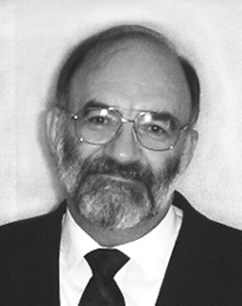MY PERSPECTIVE, Gary Damron
Continuing a series, "Introducing Jesus in the gospels", we find that Matthew rooted Him in Israel's history; John revealed Him as the eternal Word; and the Book of Luke offers a detailed, human perspective. This week, we'll review the story of John the Baptist, the herald or forerunner of Jesus, which is found in Luke 1:57-80.
Through parents Zacharias and Elizabeth, John's arrival marked the climax of the old Jewish covenant and the dawn of a new. Zacharias' hymn reveals God's mercy in action, calling us to live as His devoted people today.
The birth of John was not just a family event; it was a divine milestone, fulfilling God's promises and stirring desire among the people. "[Elizabeth's] neighbors and her relatives heard that the Lord had displayed His great mercy toward her; and they were rejoicing with her" (verse 58).
The miracle that an elderly, barren woman would bear a child echoes God's interventions in the Old Testament. It could be compared to Sarah when Isaac was born (Genesis 21:1-7) or Hannah with Samuel (1 Samuel 2:1-10). In a culture where childlessness was seen as a curse, John's birth was a testament to God's mercy. Every newborn child is a miracle, carrying the hopeful prospect of continuing family lines and God's promises.
On the eighth day after the baby's birth, John was to be circumcised according to Jewish custom (Genesis 17:12; Leviticus 12:3). The well-wishers assumed that he would be named Zacharias after his father. But Elizabeth insisted, "'No indeed; but he shall be called John'" (verse 60). The name, meaning "God is gracious", had already been divinely assigned by Gabriel (Luke 1:13). The relatives' protest reflected a conflict between tradition and divine direction, a tension sometimes still found among family members.
Seeking input from the baby's father, the crowd turned to Zacharias, and made signs to him - assuming his muteness implied he was also deaf. Zacharias wrote, "'His name is John'" which confirmed the angel's command. Immediately, his mouth was opened, and he spoke, praising God (verse 64). The people were filled with awe, and news of the miraculous birth spread through Judea. "'What then will this child turn out to be?'" (verse 66).
To grasp John's significance, we must view him as the bridge between two understandings. Zacharias and Elizabeth, righteous and blameless, represented the finest of the old covenant - priestly, devoted, yet barren and mute. Israel's history was one of God's faithfulness amid human failure. Gabriel's words to Zacharias in the temple, after 400 years with no word from a prophet, brought an end to unfruitfulness and silence. The old covenant, with its laws and sacrifices, could only prepare. But John as its last fruit, heralded the new era and Jesus.
After Zacharias' encounter with Gabriel in the temple, he had evidently used the long months of silence to reflect on Jewish scriptures. Then, following the birth and naming of his son, his thoughts were revealed in a song (verses 67-80). Filled with the Holy Spirit, Zacharias prophesied the Benedictus (Latin word for "blessing") and praised God's mercy as well as John's role.
A common theme runs through the songs of Mary and Zacharias (Luke chapter 1), as well as Simeon in chapter 2. God would fulfill His promises, visit His people, and bring both individual and social salvation. He would intervene in human struggle, benefit the poor, offer freedom from sin and fear and enemies, and enable believers to serve Him in holiness.
This child of Zacharias and Elizabeth was destined to prepare the way and proclaim the coming of Jesus the Savior who would be the "horn of salvation" raised from David's line (Psalm 132:17). John's birth set in motion events leading to fulfillment of the covenant with Abraham (Genesis 22:16-18).
After putting first things first, Zacharias sang to his son. "'Thou, child, will be called the prophet of the Most High; for you will go on before the Lord to prepare His ways'" (verse 76). As a messenger for God and teacher of men, John would proclaim God’s mercy; announce the baptism of the Holy Spirit; and call all to repent of their sins. Malachi 3:1 and Isaiah 40:3 prophesied his role. God's tender mercy brings Jesus as the sun of righteousness shining in darkness (Malachi 4:2 and Isaiah 9:2). John's proclamations would awaken hearts to light, repentance and faith.
Luke noted that John "continued to grow and to become strong in spirit, and he lived in the deserts until the day of his appearance to Israel" (verse 80). Around age 30, he emerged, fulfilling the law's age requirement for public ministry.
Zacharias' prophecy reveals ancient promises, fulfilled in God's new people. Galatians 4:4 declares, "When the fulness of the time came, God sent forth His Son." John the Baptist prepared the way for One who brings redemption. God's church exists only through dependence on and devotion to God. In waiting and serving, we can echo Zacharias' praise and trust God's gracious plan. And as God's called-out ones, may we also be the herald, like John the Baptist, preparing hearts for the kingdom.











